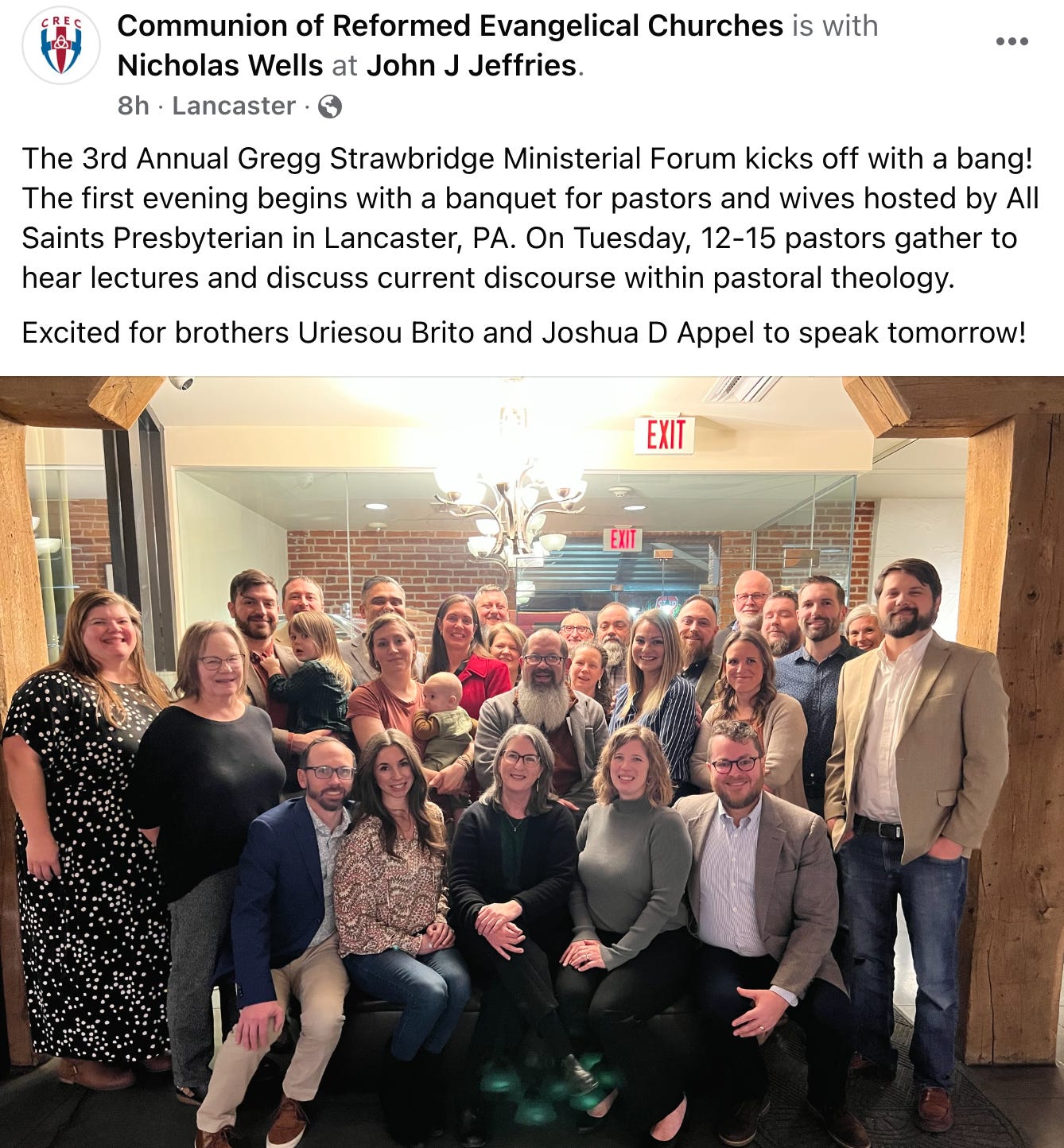Eight Principles for Preaching
Not all content is created equal and not all delivery is the same
I want to take the time to offer a few pieces of rhetorical wisdom for young pastors starting in the pulpit ministry. These stem from some of my research and writing for my dissertation and basic practical thoughts in my analysis of listening to at least two sermons weekly for over 20 years.
#1, Preaching is an art. It needs to be developed. It is not the mere delivery of materialized research. Preaching entails advancing rhetoric and, therefore, must be continually reforming. Every preacher should work on his skills. He should not be content in his delivery but constantly work on how better to communicate God's Word Sunday after Sunday.
#2, Preaching is typological. Preachers don't simply look at the text and offer the most basic analysis. He is not merely restating what the text said. He is looking at patterns and parables with new eyes. He brings out from the text information gleaned from textual associations. He sees that John's writing in Revelation is never divorced from his writing in John's Gospel and that Gospel is never divorced from Moses' Genesis. The preacher conveys mysteries now made known. He offers the once-hidden manna now revealed from heaven. He preaches Christ and him crucified.
#3, Preaching is practical. Preachers need to provide clear imperatives. There is no such thing as implicit application. Application is directed and subjected to the works we are called to exercise before God and man (Eph. 2:10). The Spirit may apply the text without direct application. Still, he will work through the pastoral imperatives to speak to the hearts of men. The Word of the Lord will not return void, but there is a void in the sermon when the minister does not apply the passage to the lives of the people.
#4, Preaching is editing. A picture is worth a thousand words, but a thousand words carefully edited create more than just a picture. It paints an image in the listener that he may carry for years.
Words convey great meaning. Sometimes, one well-crafted sentence can say more than five poorly constructed sentences.
Write your sermons out and edit them several times before Sunday. Delete overly repetitive words. Summarize big arguments. Keep ideas succinct. Read your manuscript out loud. Practice volume, intonation, and pronunciation. Don't waste your words, and don't minimize the delivery of those words.
Preaching is not just transmitting data. It is formational. This means that preachers use words to form, not just inform. Editing sermon manuscripts allows the hearer to grasp words with more precision. Preaching entails good words but also succinct and clear words.
#5, Preaching is not mechanical. The art of preaching is a deeply invasive act for the preacher. The preacher feels the sermon in a way he does not feel when teaching Sunday school or lecturing at a conference.
There is a holy exhaustion in communicating truth from the pulpit. The context of worship is different than the context surrounding a lesson taught. The sermon is the dividing asunder of joints and marrow. It cuts like a two-edged sword, and therefore, it also cuts the messenger.
Precision with language is not showing off or attempting to imitate pagan excellence of speech, it's to embody the excellence of speech God requires of his servants. Paul's concern was sophistry, not clear and well-crafted language.
Preaching demands growth in knowledge: knowledge of the people, but also knowledge of words, language, and genres. The Bible uses careful articulation to instruct his people. This is evident from the chiastic, poetic, parabolic, and narratival nature of the biblical record.
#6, Preaching demands love at first sight. Those opening words are crucial to the well-being of a sermon.
The beginning of each sermon is meant to develop a hunger for what is to come. I have heard far too many sermons whose opening words crush the listener's expectations. I would spend as much time crafting the first two sentences as the closing ones. They are that important.
Let me offer some practical advice: a) do not begin sermons with superfluous observations, b) do not begin with a flippant joke unless it is a well-thought pun or a humorous observation deriving from the text itself or a story that will enhance the text, c) avoid what I call "sermonic white noise," the "ums and uhs." Train yourself to stop talking if you need a second to transition to the next point. These fillers make sermons seem casual and devalue the rhetorical nature of preaching. d) don't begin with casualness ("Good morning, everyone!"). Instead, begin with a thought-out prayer or a Pauline greeting (Grace, mercy, and peace be with you...)
Remember that much of this can be avoided with knowledge of your content. Read your sermon. Practice your sermon. Familiarize yourself with the content of your sermon, which gives you greater liberty with delivery. Sermons are not meant to be read but embodied. So, make sure that those opening words mean something.
#7, Re-write your paragraphs as if they were to be delivered to real people in the pew and not an academic audience. Reformational preaching often lacks intimacy. The glory of the pulpit does not negate the nearness of God's Word to the people.
Turn phrases into memorable ones.
Don't state the expected.
Avoid tedium by avoiding cliches.
State things in ways good authors do--they capture the imagination by challenging our categories and phrasing ideas in new ways. Therefore, read good fiction. Read Chesterton, Lewis, MacDonald, Wodehouse. Train yourself in a language that has stood the test of time.
#8, Finally, ask questions. Entice the hearer to what's next. Build on themes as the Gospel writers do. Find ways to show how the current text connects to other ones; how each verse glorifies the previous one.
Transitioning from one paragraph to another is essential to keeping your people engaged in your reasoning and logic. Therefore, ask questions to help them see where you are and where you are going.
Nuntium
I am here in New Holland, PA. The weather yesterday was sunny, in the 50’s. They expected a snowstorm this week, but I brought them some Pensacola instead.
Our opening banquet was superb. Kasey Horvath and the saints prepared a great evening with splendid wine and food. The liturgy, songs, toast, memories, and fellowship were delightful.
I will be delivering my opening talk this morning. I am also eager to hear from Pastors Appel and Horvath and join the brothers in dialogue.




So do you write a full manuscript for all your sermons? And how closely do you follow that? (If you do it)
Brilliant. Thank you.